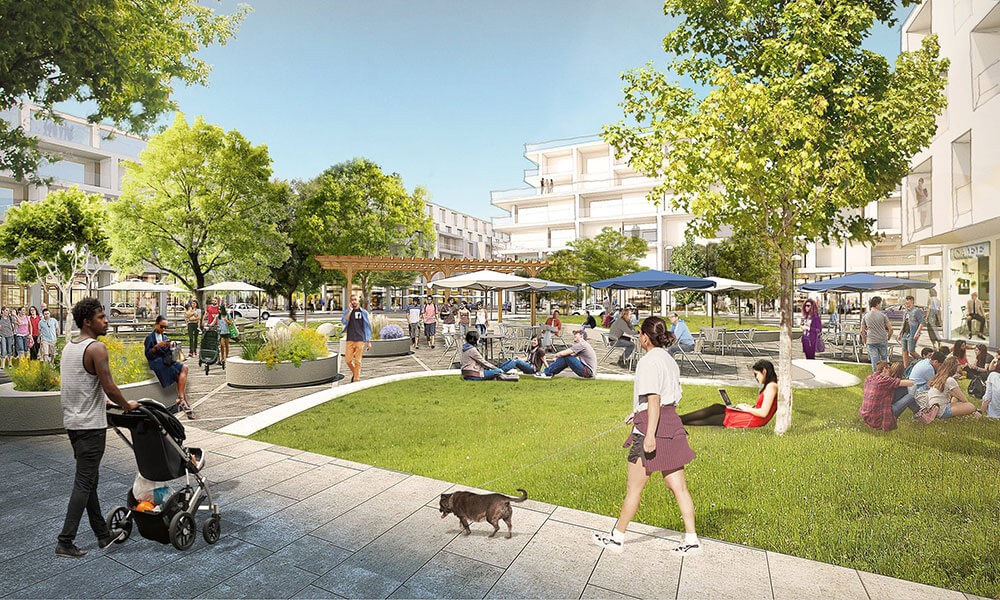Advertisement
Facebook has been likened to a virtual community of more than two billion people, but the company’s attempt to build a real – bricks as opposed to clicks – village is proving more problematic. Originally planned to provide office space for Facebook and housing for some employees, the Willow Village development has been plagued by controversy.
Set on a 24-hectare site near the existing Facebook headquarters in Menlo Park, California, the plan is for about 160,000 square metres of office space, 18,500 square metres of retail space, at least one hotel, and 1,500 homes.
Property values (and rents) in the area have increased dramatically since Facebook and other tech companies built their headquarters here – which is both a good and a bad thing. It’s a good thing if you have invested in property here, but it’s not such a good thing if you live near here, work near here and rent a home on a minimum wage.
And that’s where the problem lies. Since the techie-led gentrification of the area, low-income residents have slowly been squeezed out, which is why Facebook has committed to offering 225 of the 1,500 apartments at below market prices, but what is not specified is how – and to whom – those 225 units will be offered. So, it’s not surprising that many of the neighbours are not so excited about the project. And – just down the road – Google is planning a 5,000-home development called Alphabet City near the town of Mountain View.
While people in many parts of the world are embracing the technology that allows people to work from home, these Silicon Valley tech companies are turning the concept upside down, and offering their employees a chance to live at (or very near) the office, which would encourage their actual physical presence at the workplace.
Advertisement

The company village is not a new idea and – in its earlier iterations – it had its advantages. One of the earliest was Bourneville in England, which was built by the Cadbury brothers to move their workers from the grimy city slums into the clean, healthy country air. They provided good housing, sports facilities, open space and schools. Admittedly, Willow Village will offer its residents (and Facebook employees) similar facilities, such as good retail space, a dog park, lots of open space, transport links, and trails for running, biking, etc. But in 2019 that’s pretty much the bare minimum you can get away with, whereas in 1879, when Cadbury’s built Bourneville, it was revolutionary.

But there is more to company villages than convenience. In the USA, the town of Hershey, Pennsylvania, was built to house workers at the eponymous chocolate factory, and the town of Pullman, Illinois, housed workers building the fabulous railroad cars that made train travel so comfortable (for the wealthy) in the 19th century. While living conditions in both these towns were far better than workers could expect outside of them, this came at a price. Firstly, they could not buy homes, only rent them. And, if they lost their jobs – or decided to work for the local butcher, baker or candlestick maker – they would lose their homes. And the company controlled what was taught in the schools, what books lined the library shelves, and what performances could be staged in the theatres they so benevolently built for their workers. Of course, mine villages are nothing new and, as many past and existing mineworkers both here and abroad can testify, these villages were carefully designed for controlling every aspect of workers’ lives.
So, while it’s hardly likely that Facebook or Google will start treating their employees like mineworkers in the notorious hostels that formed an integral part of colonial and apartheid South Africa, it’s not unreasonable to suspect that living in a company town may come with an element of control.
And the question remains of what will happen to the cleaners, school teachers, waitrons, gardeners and small business owners who already live close to where these villages are planned.
